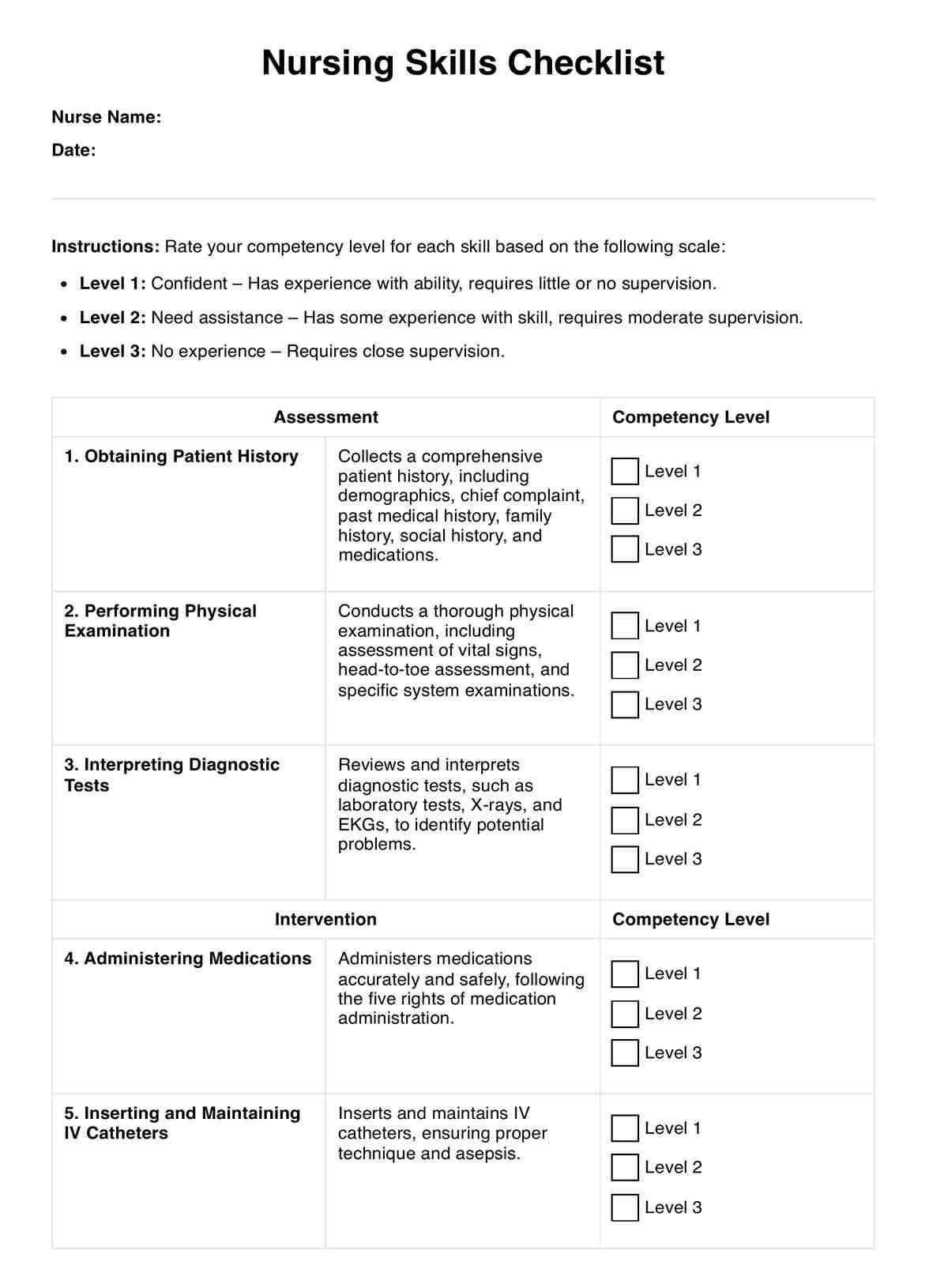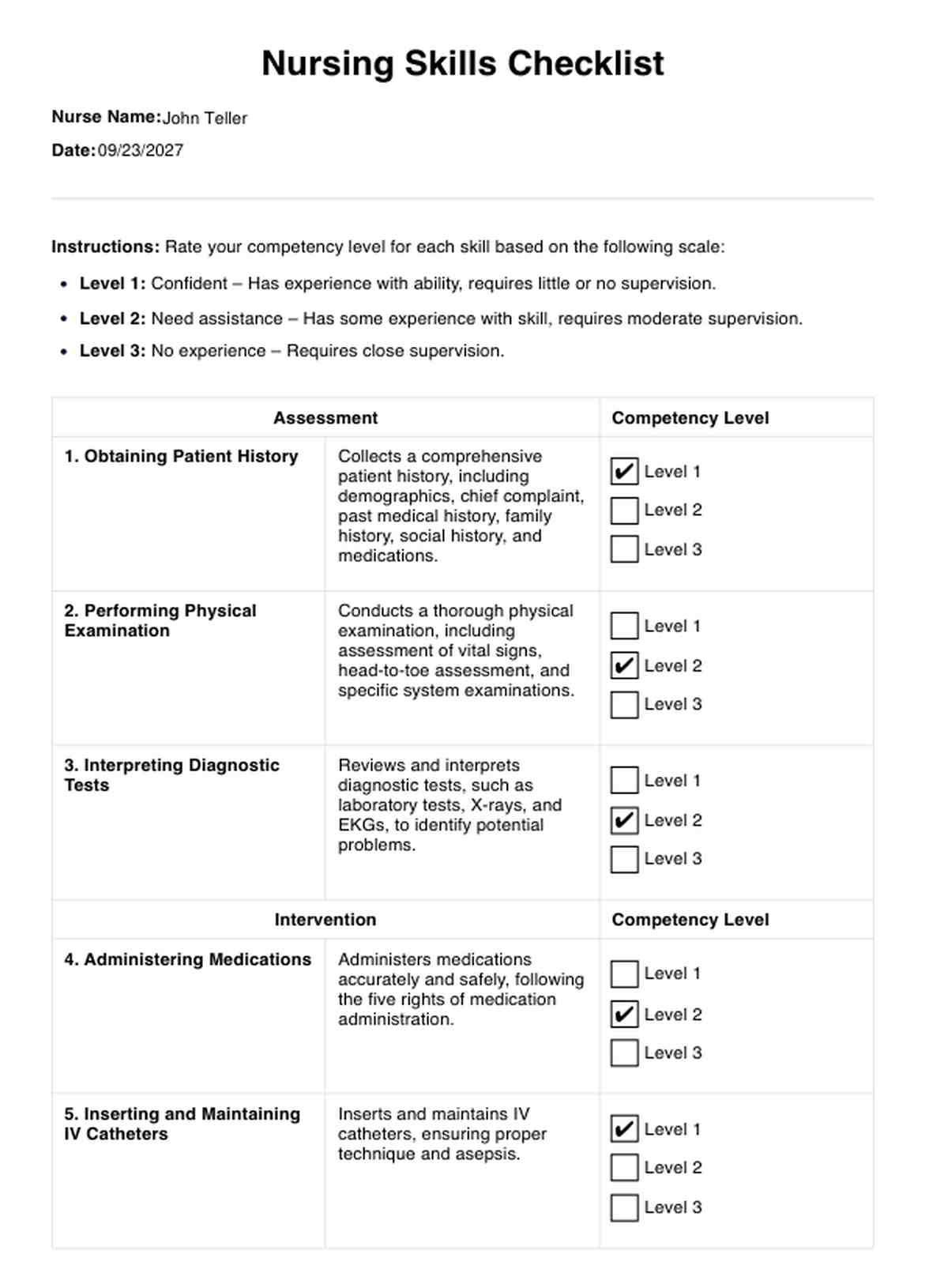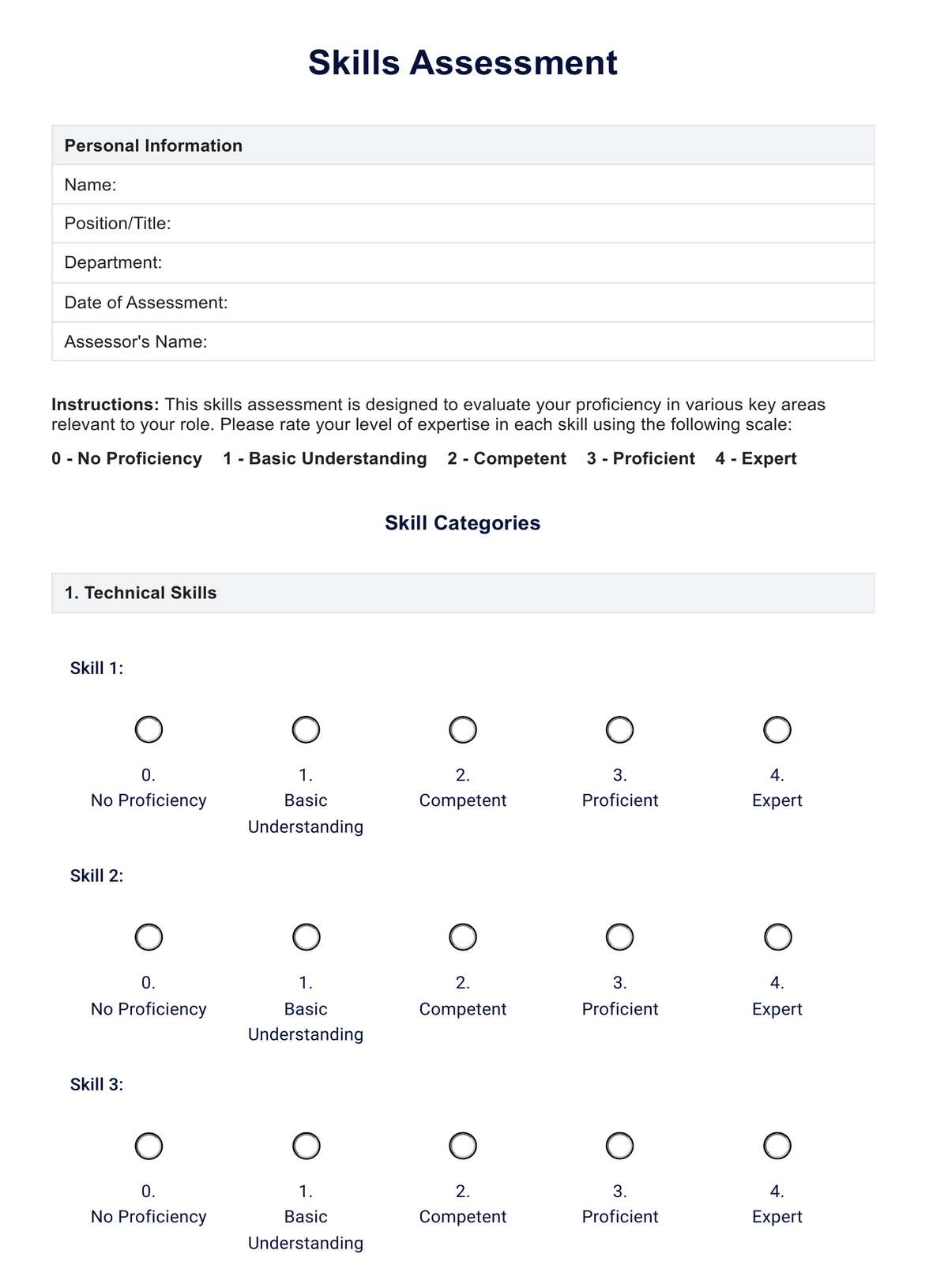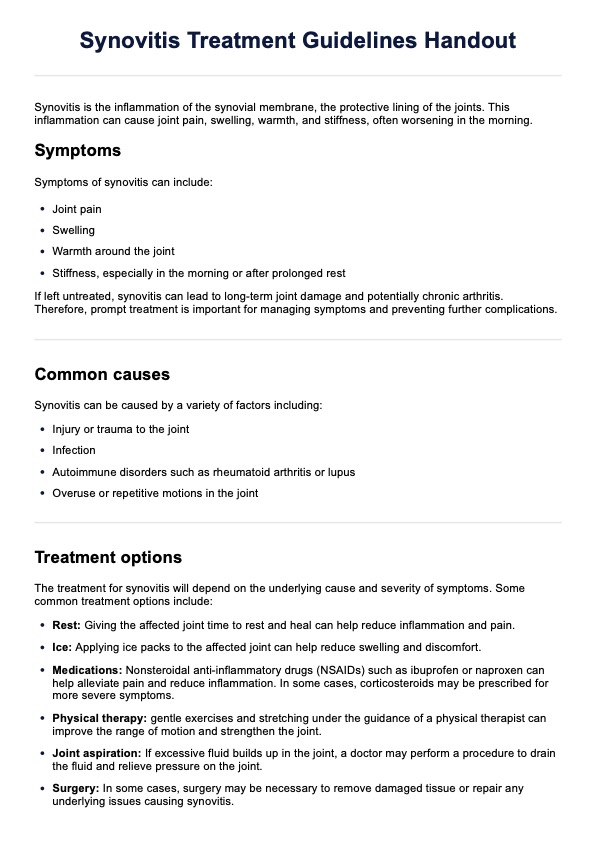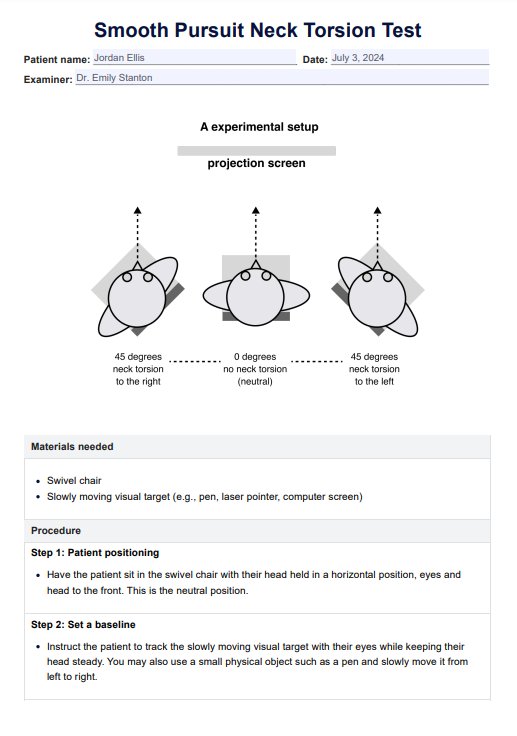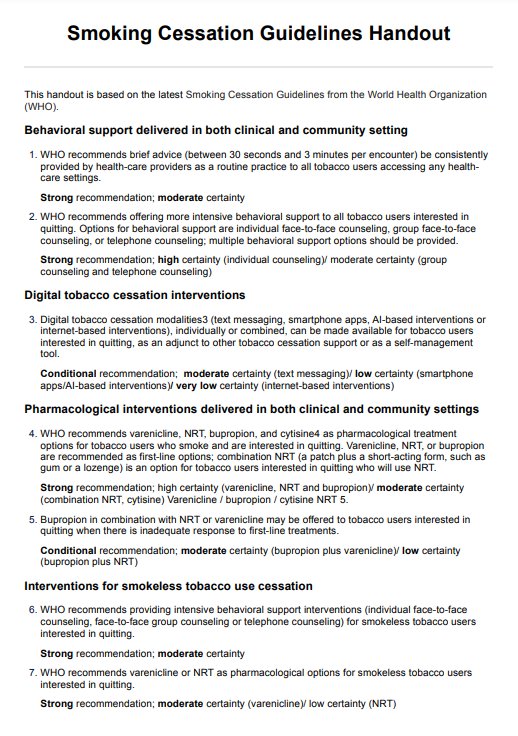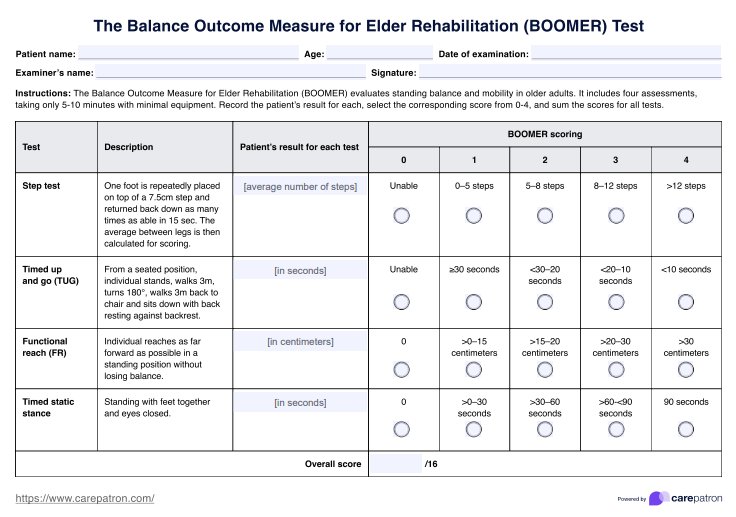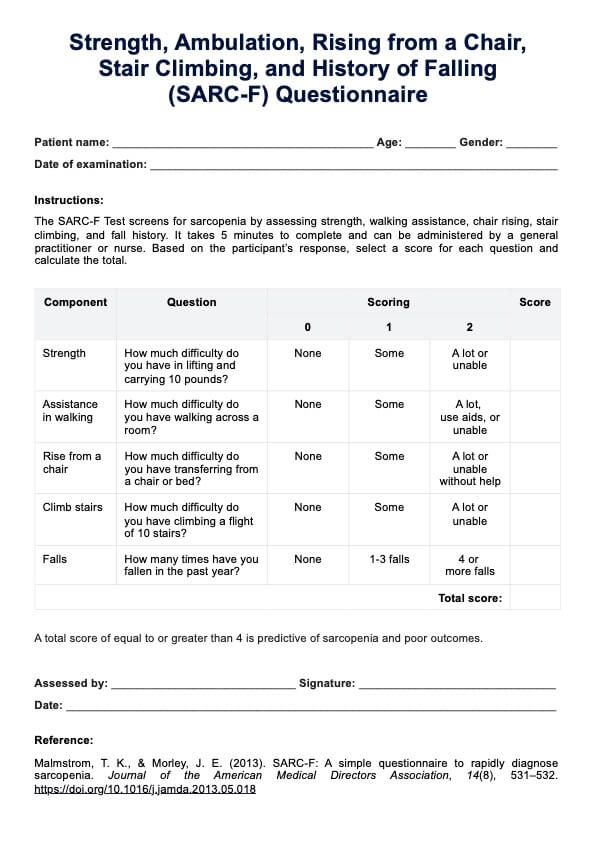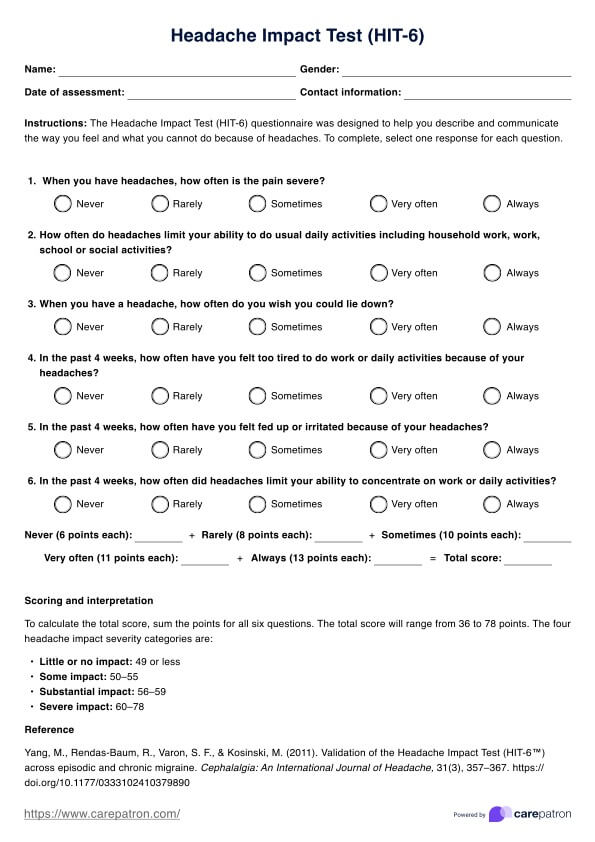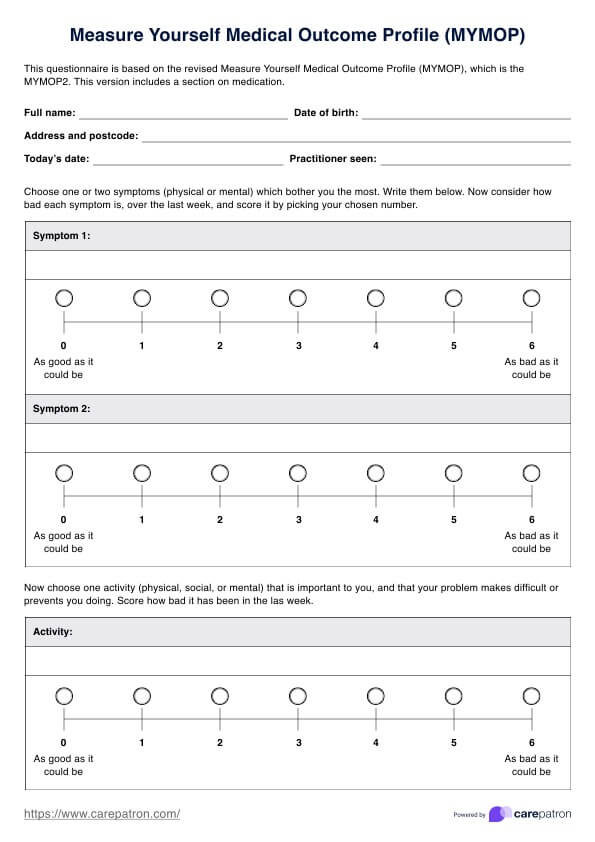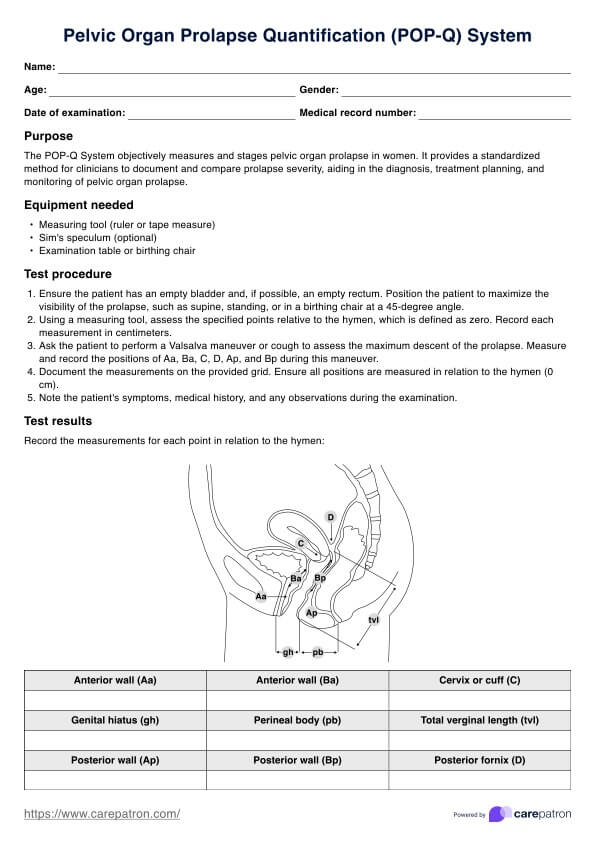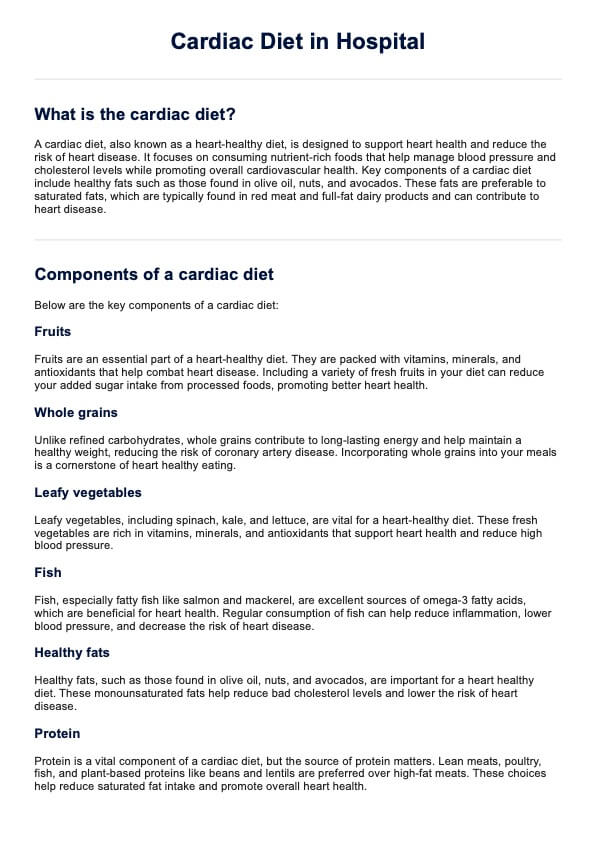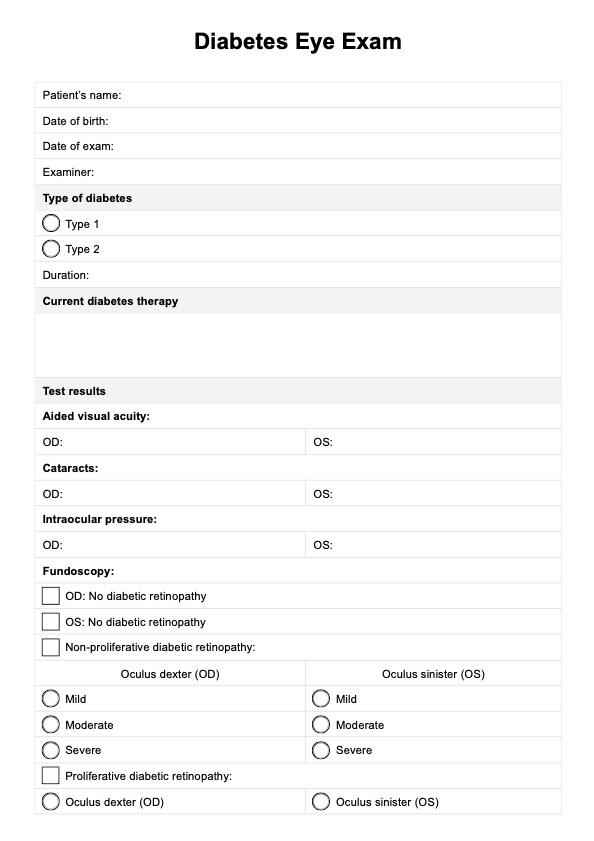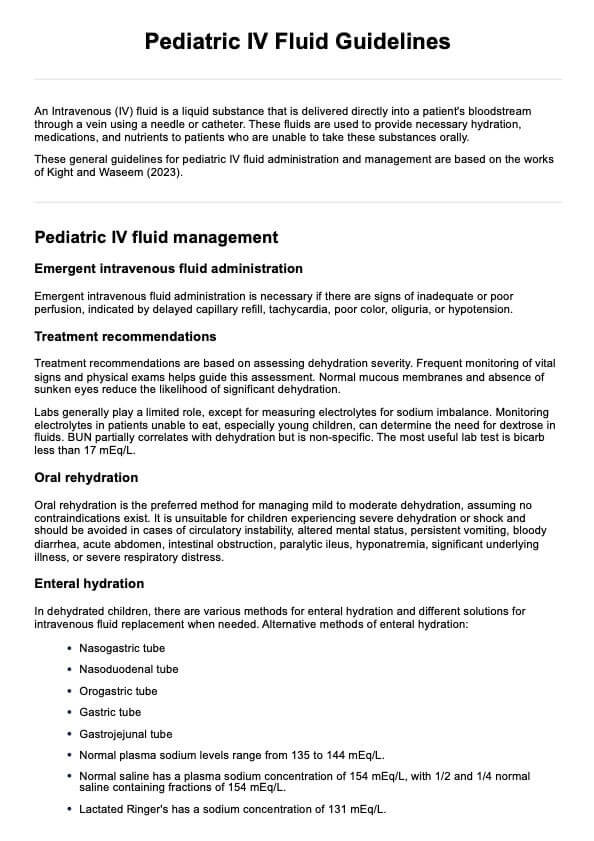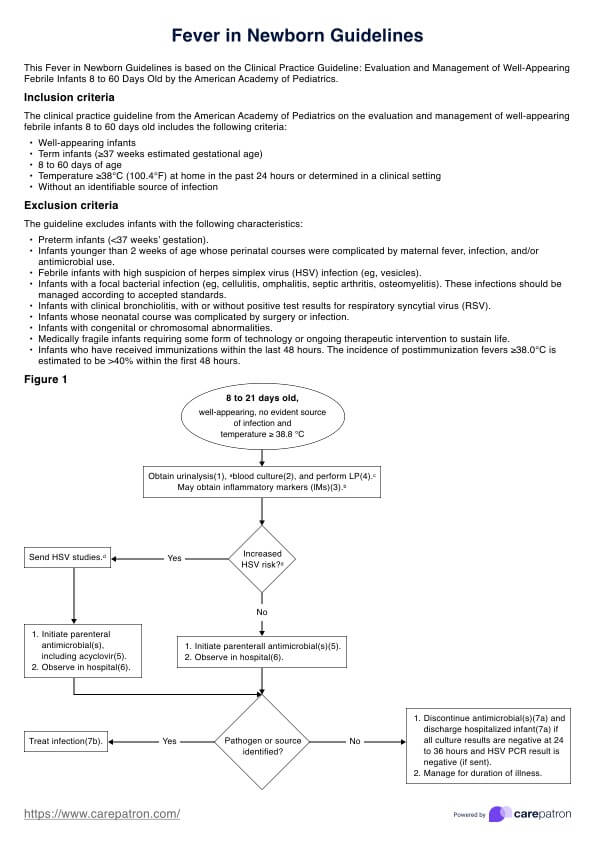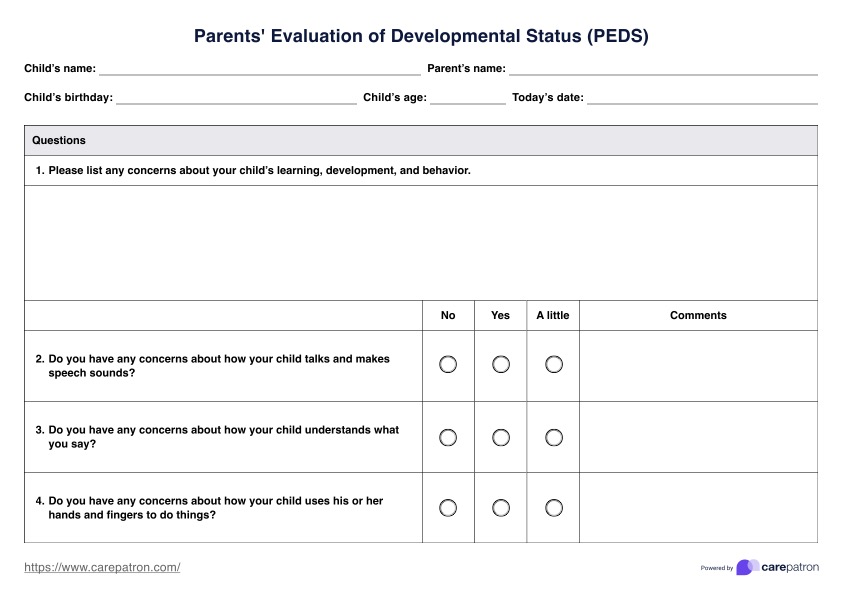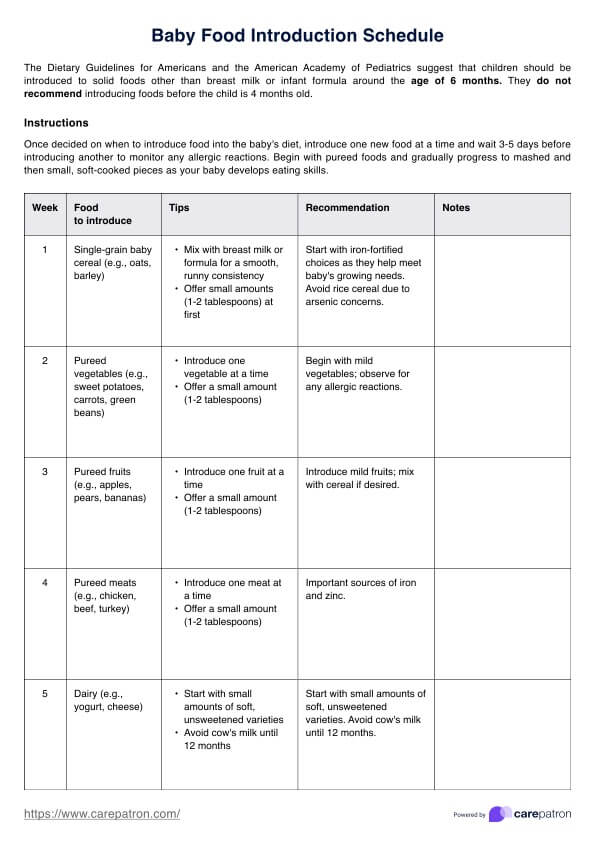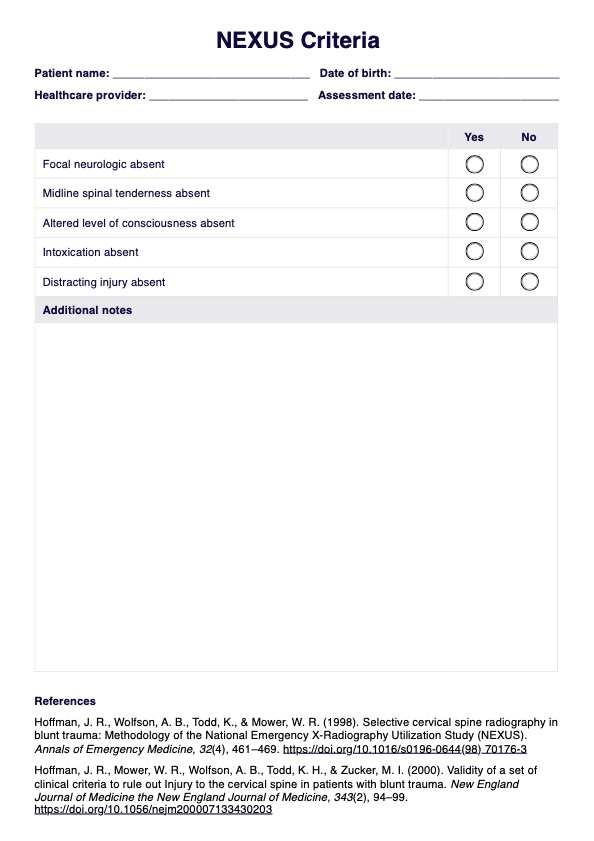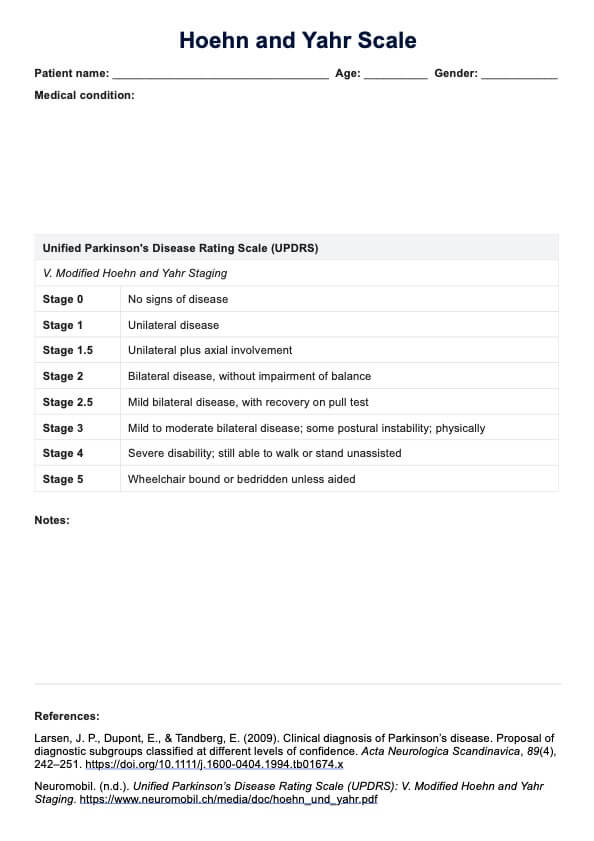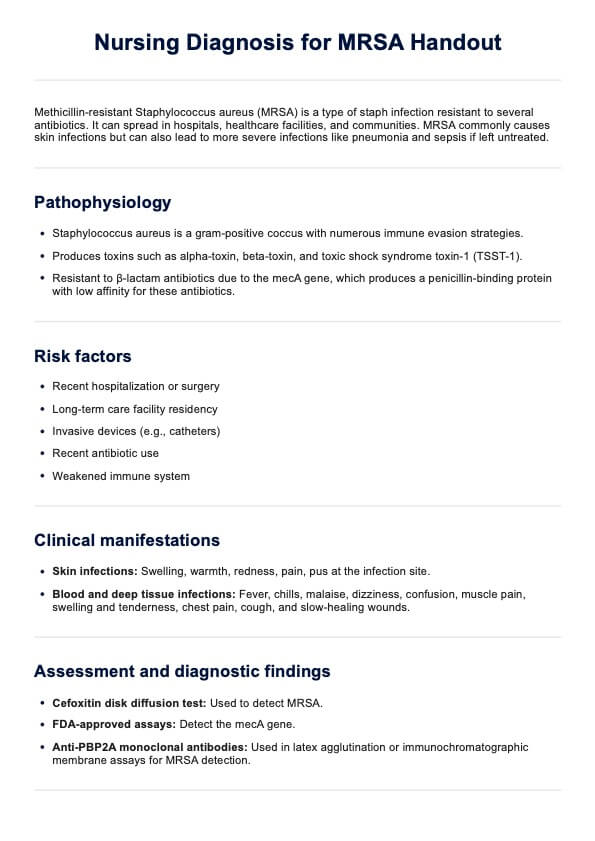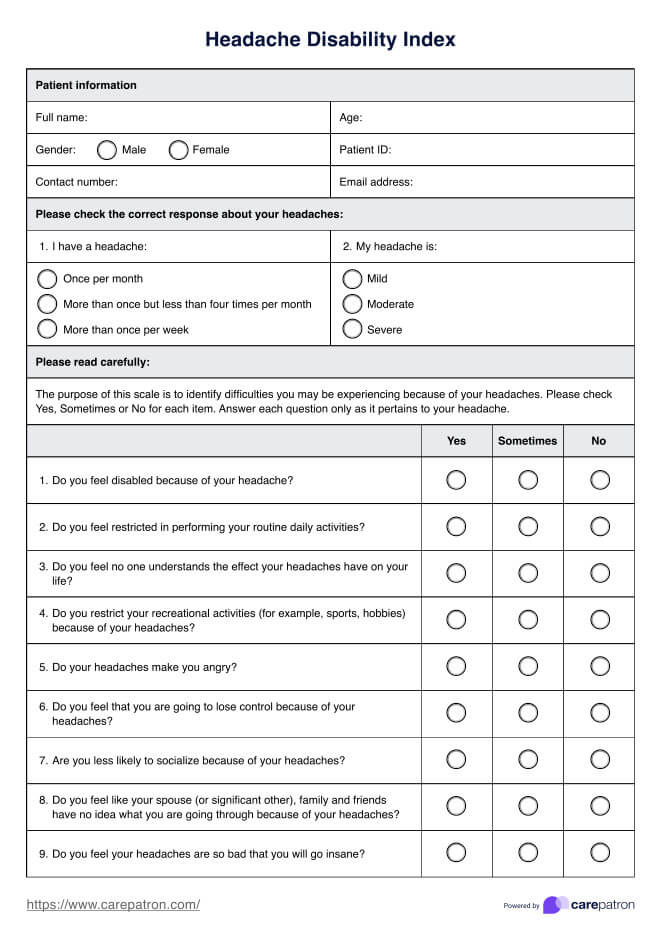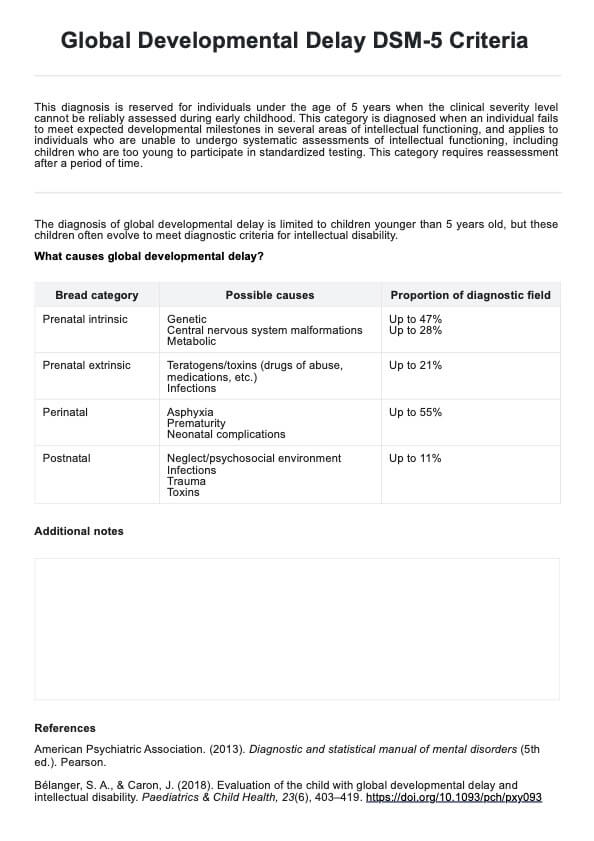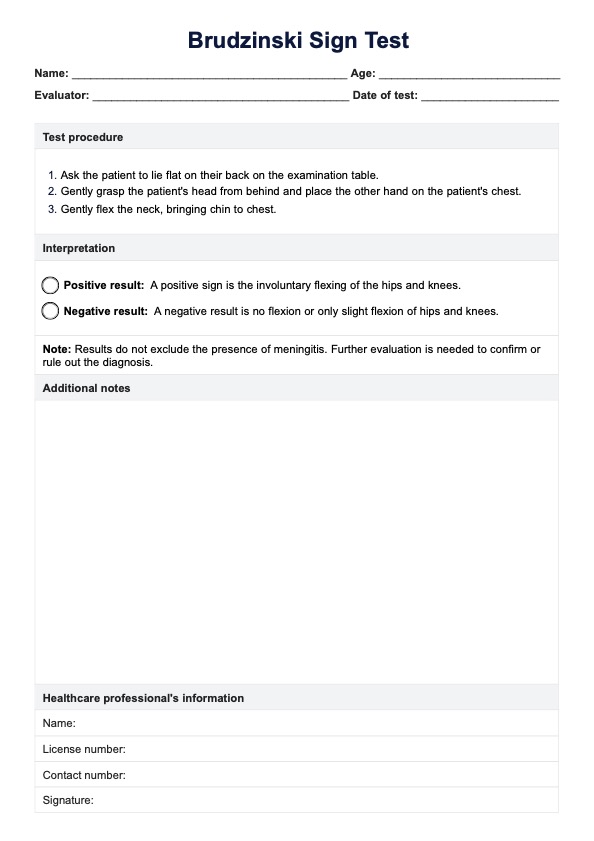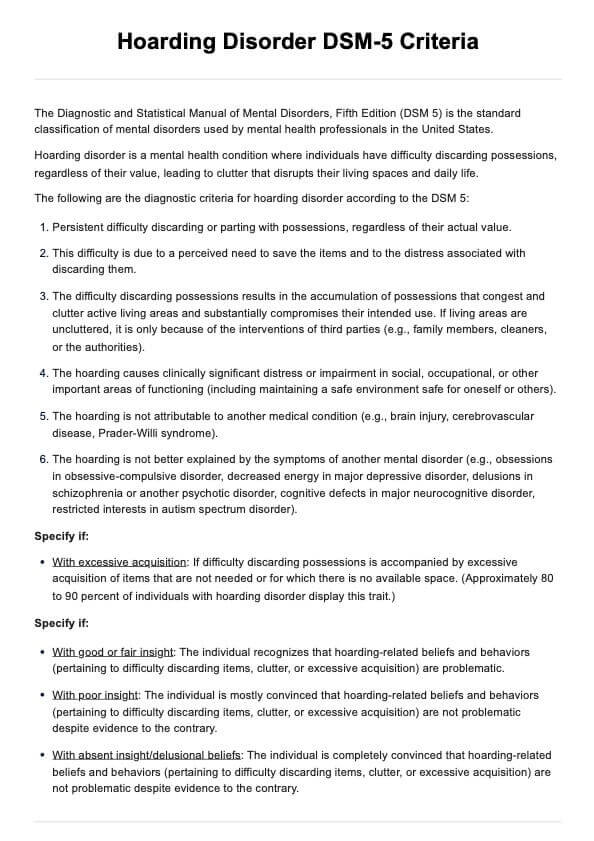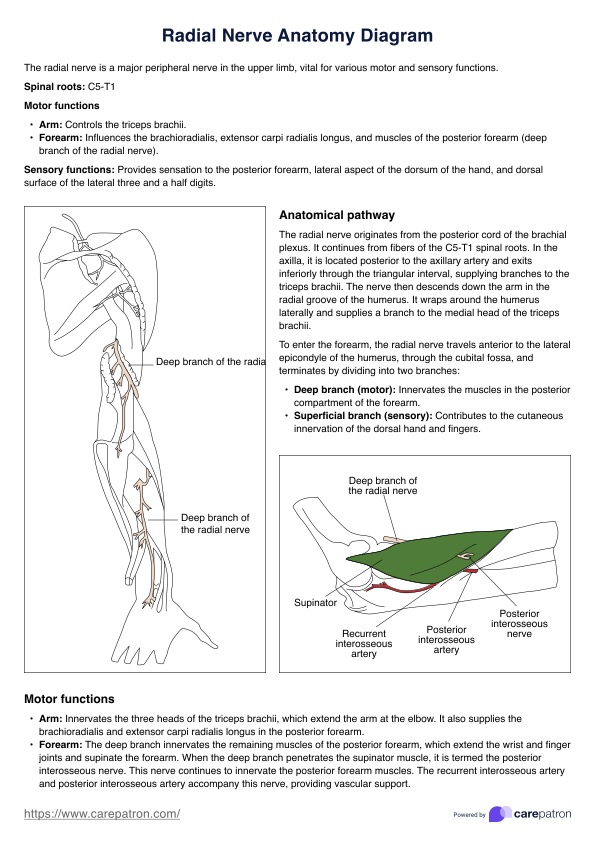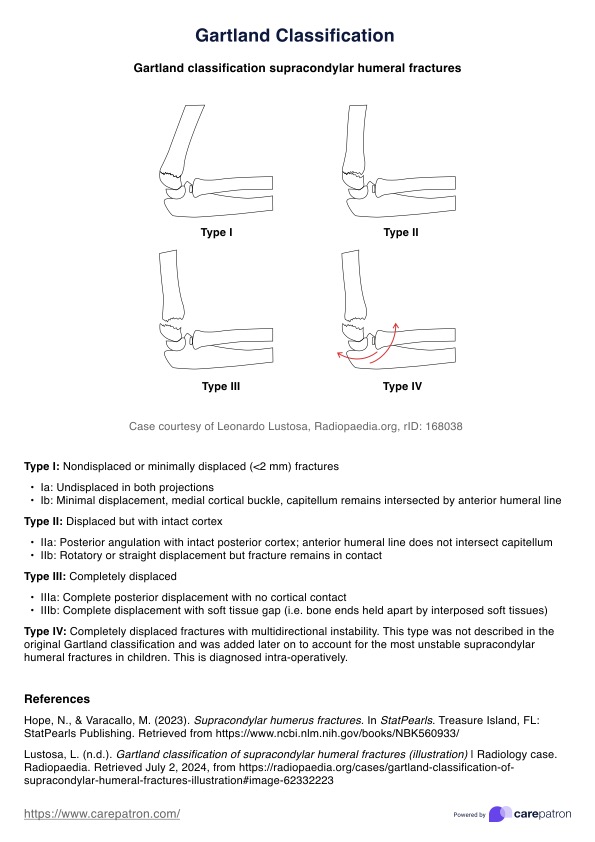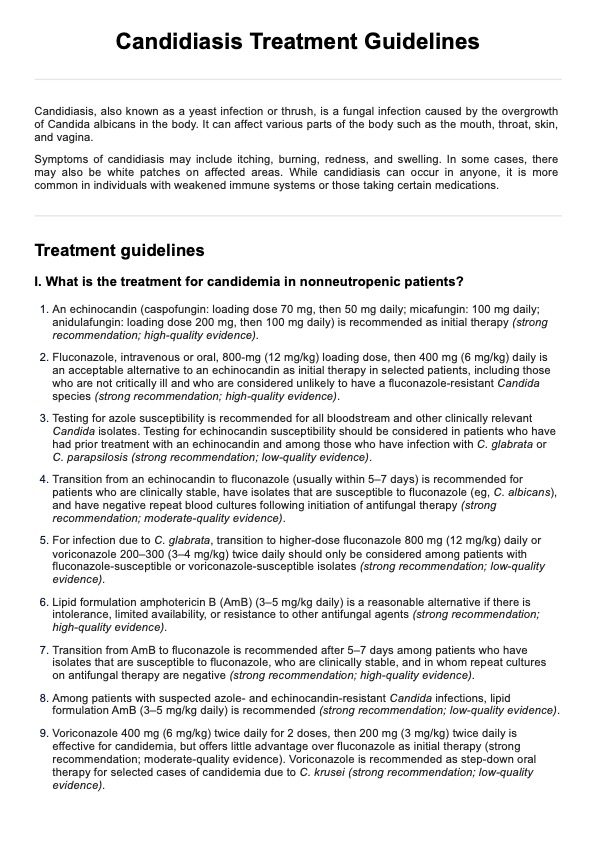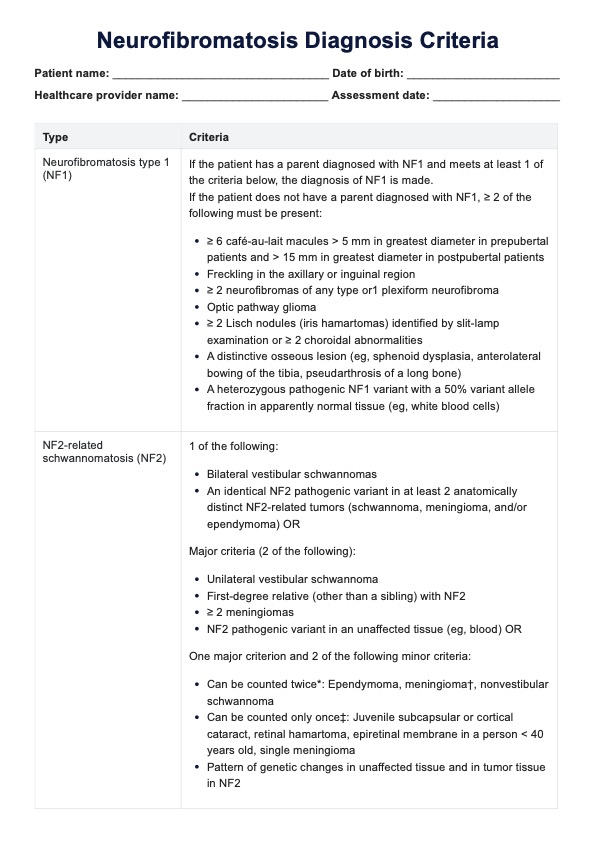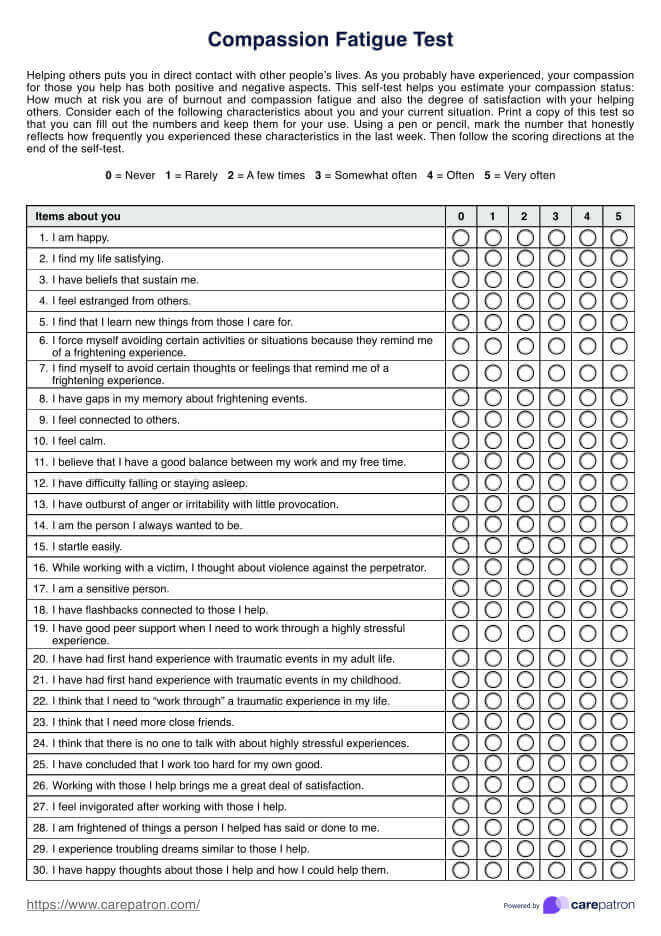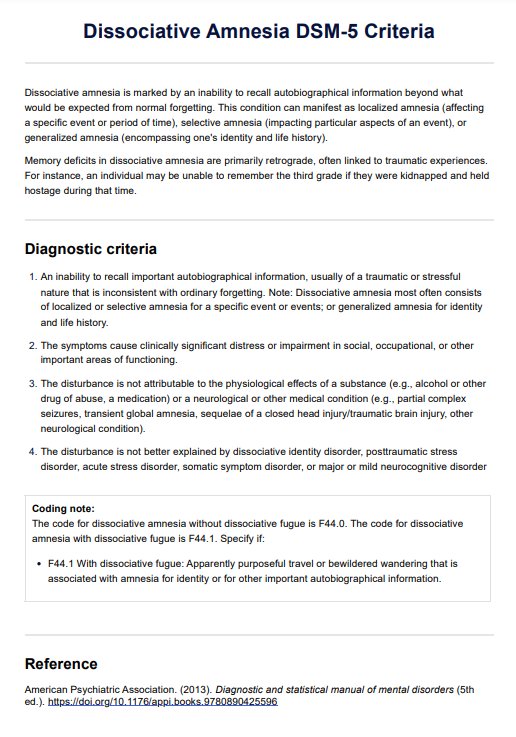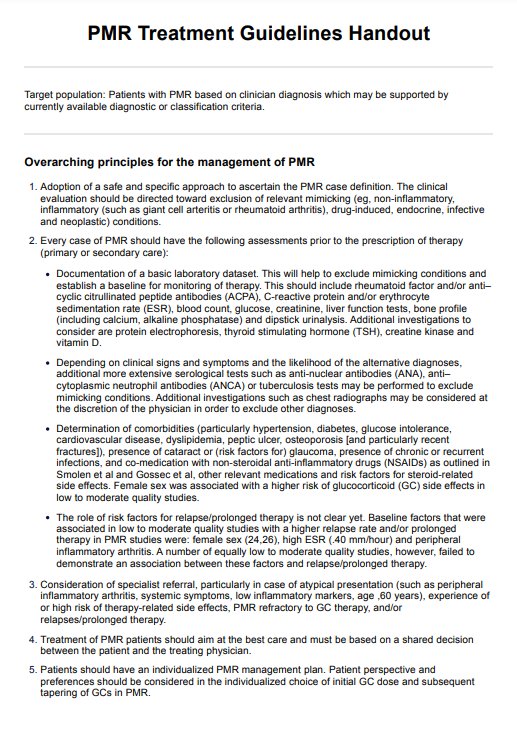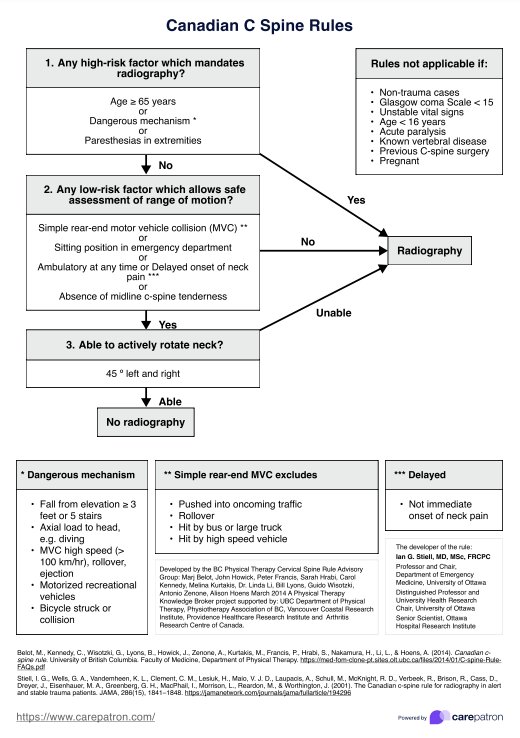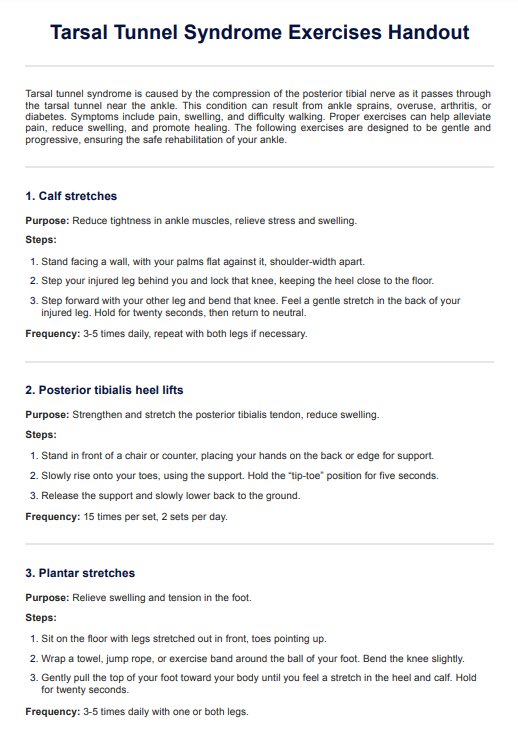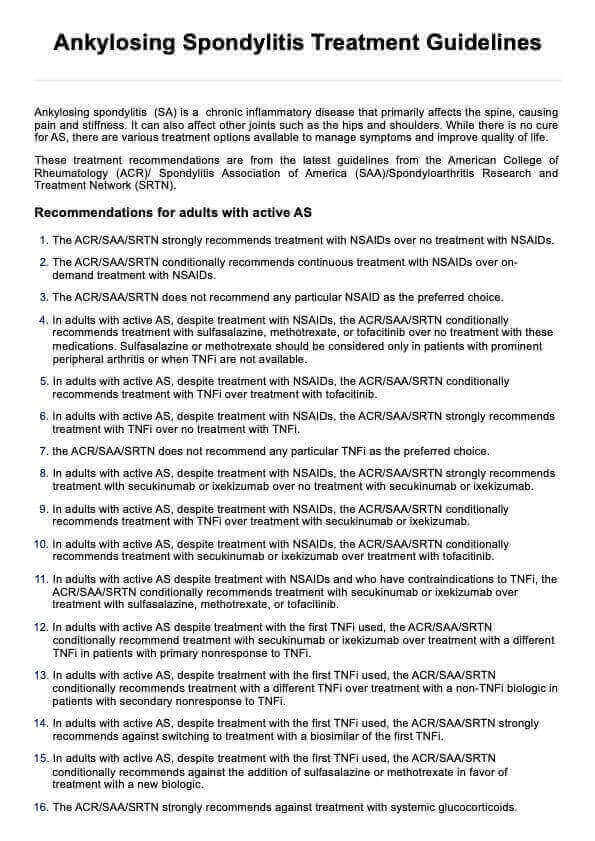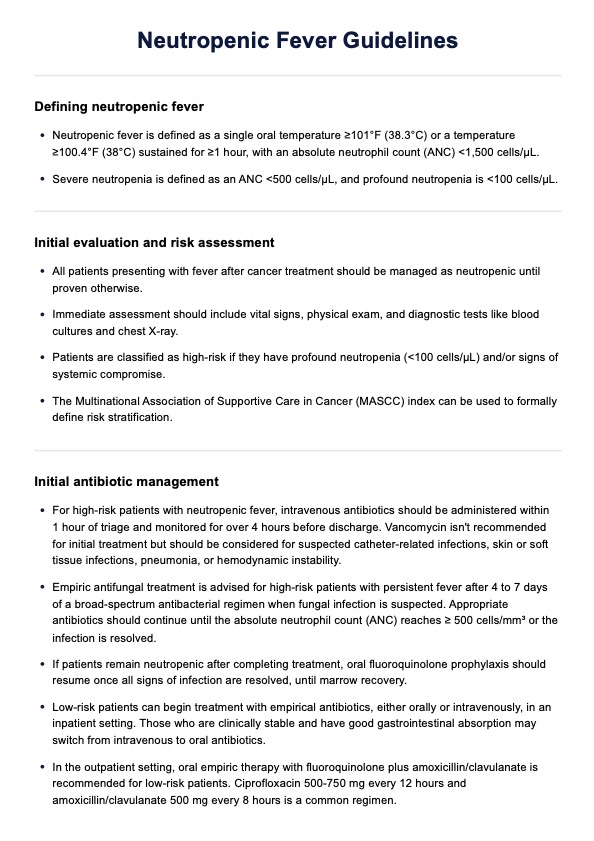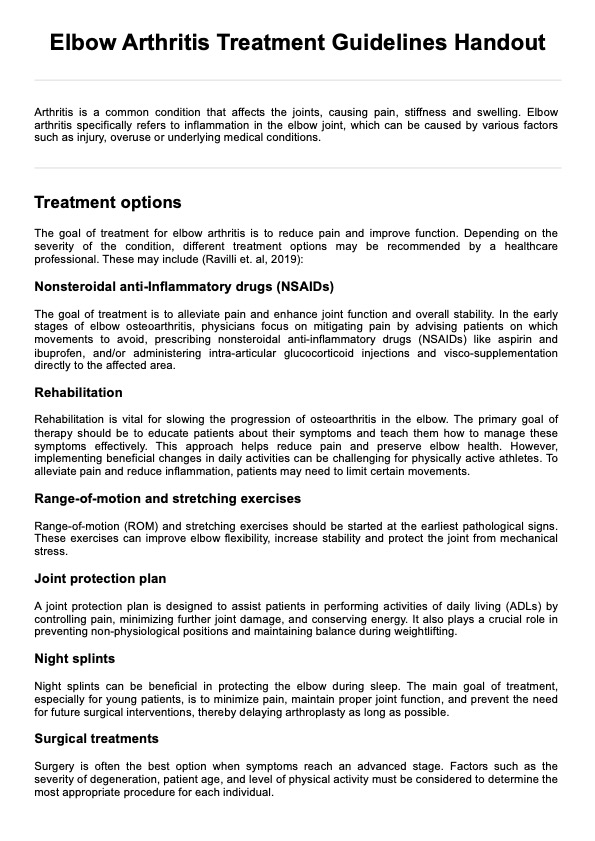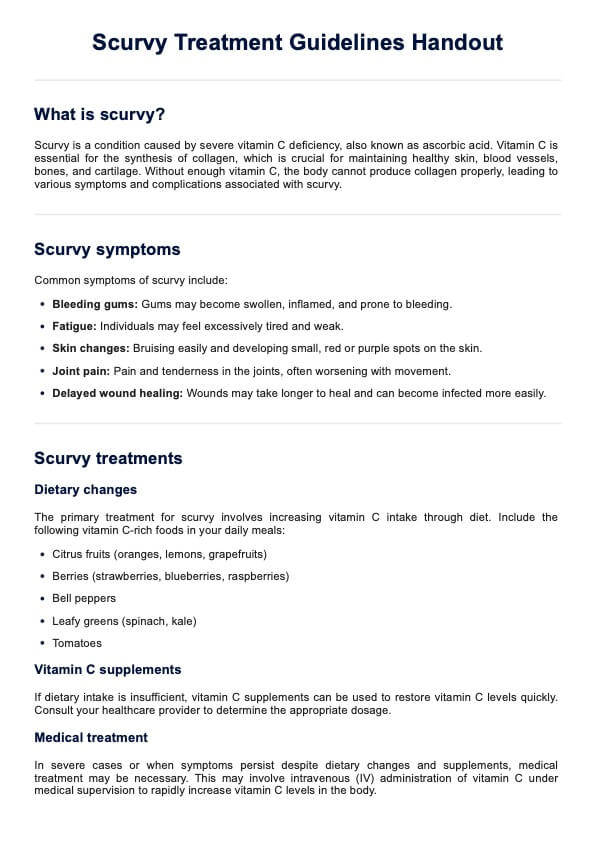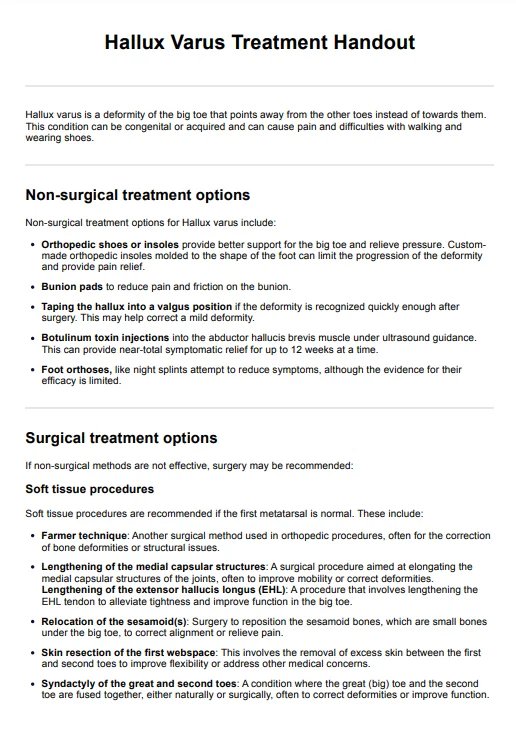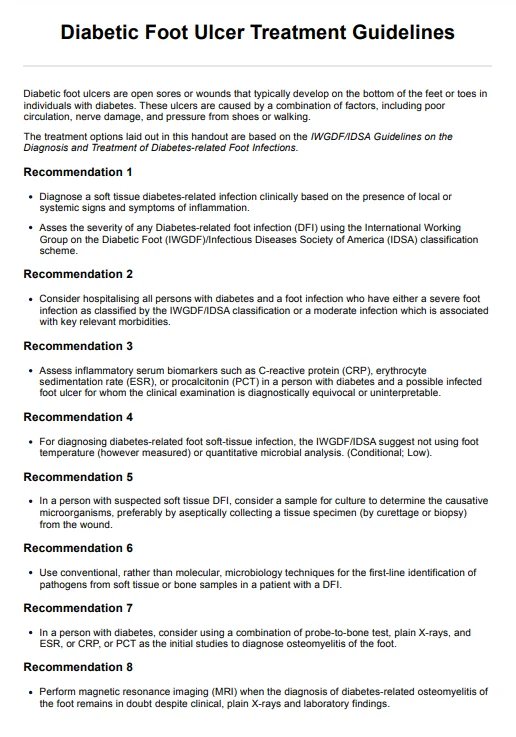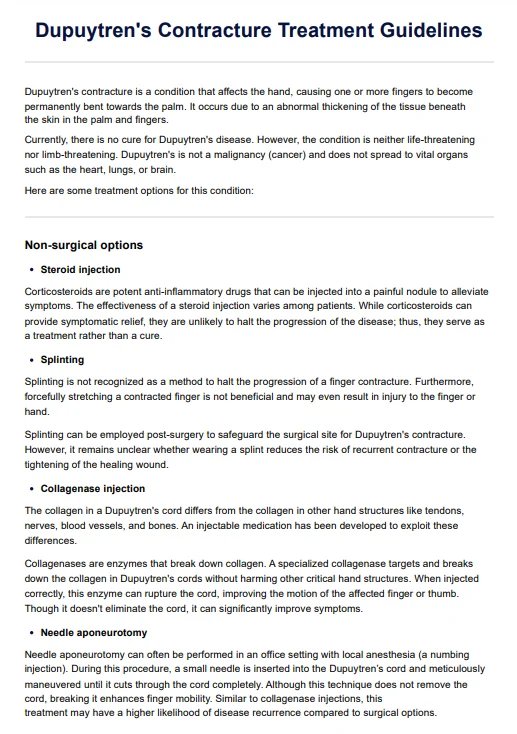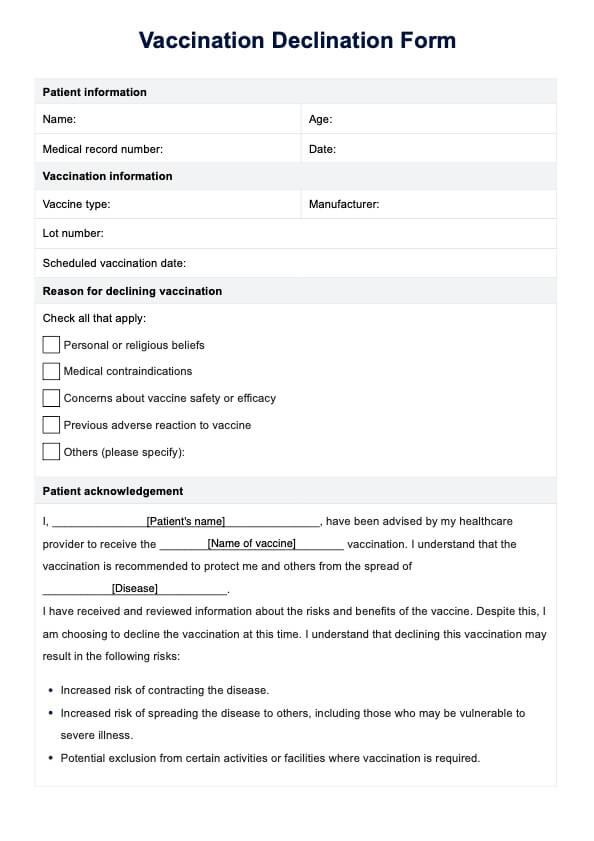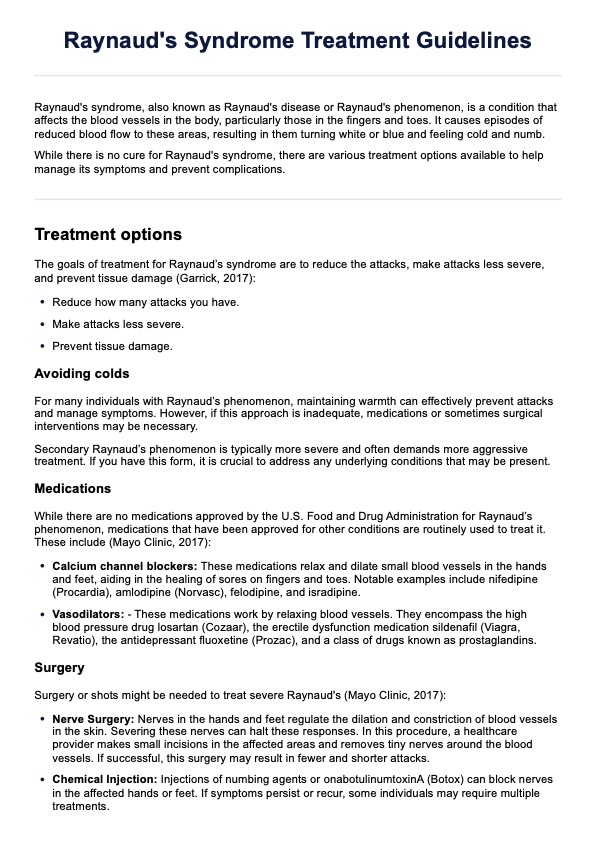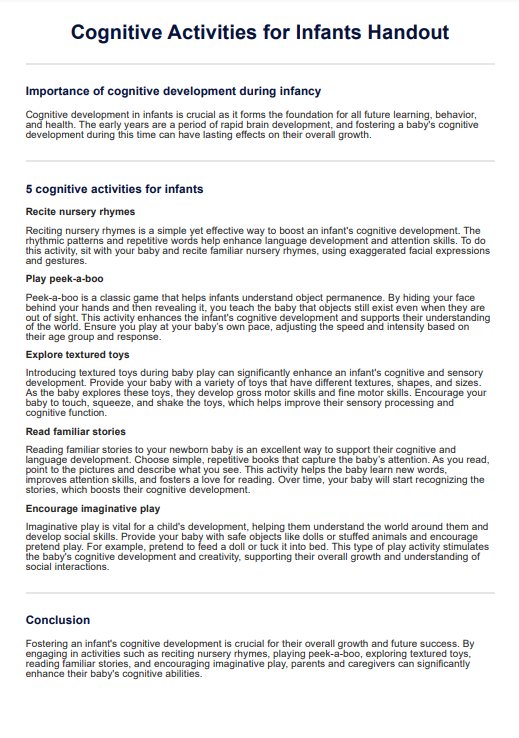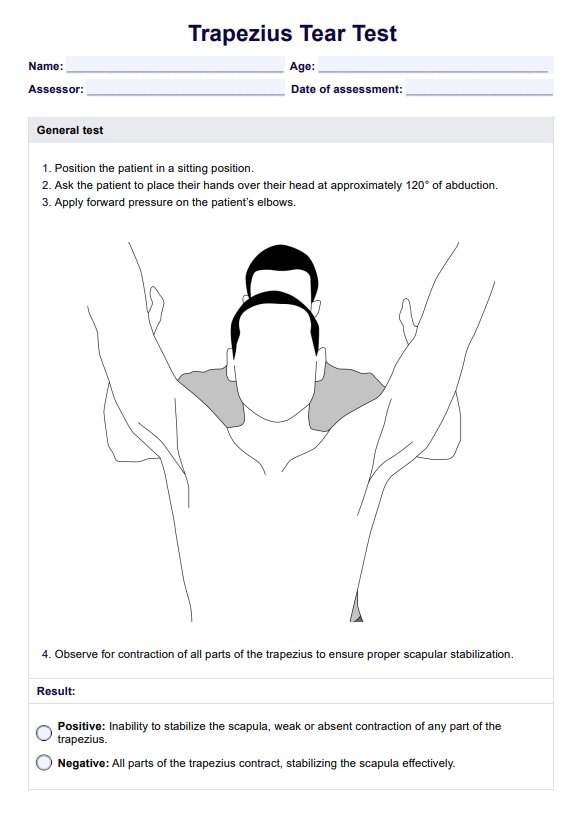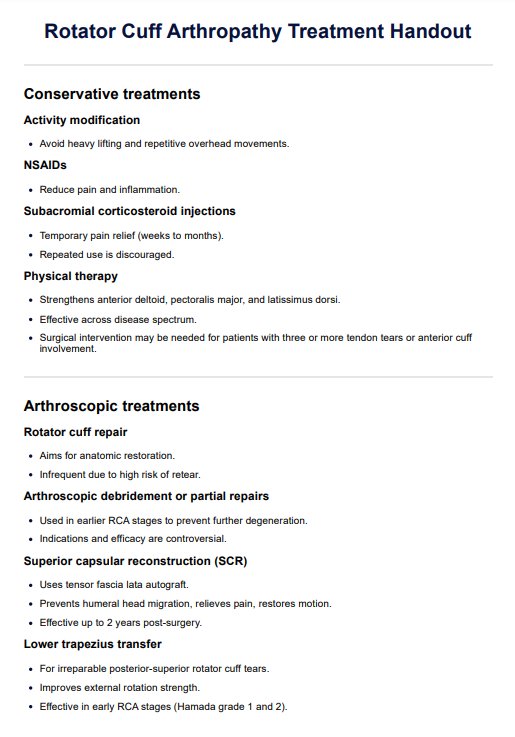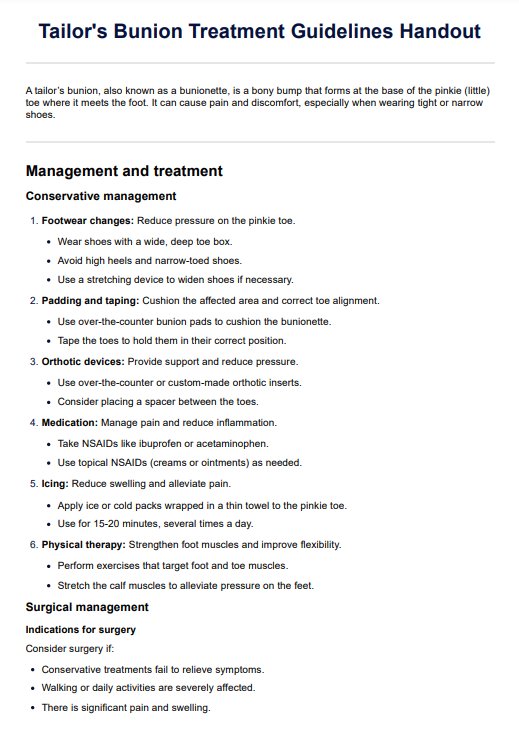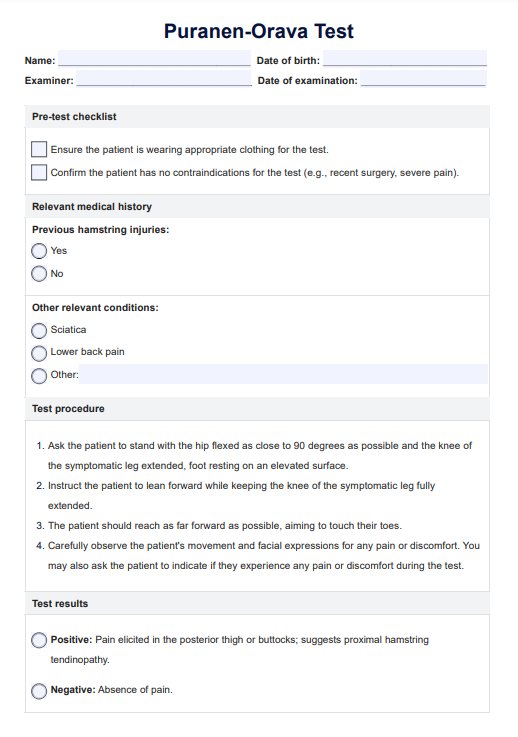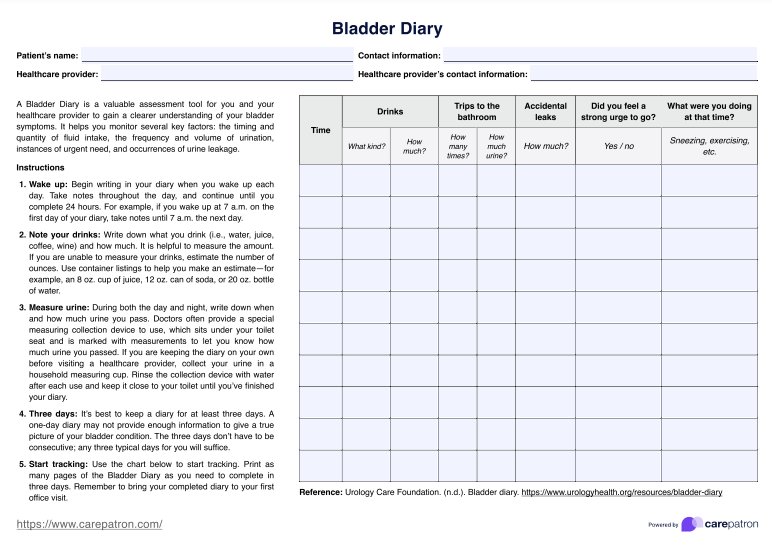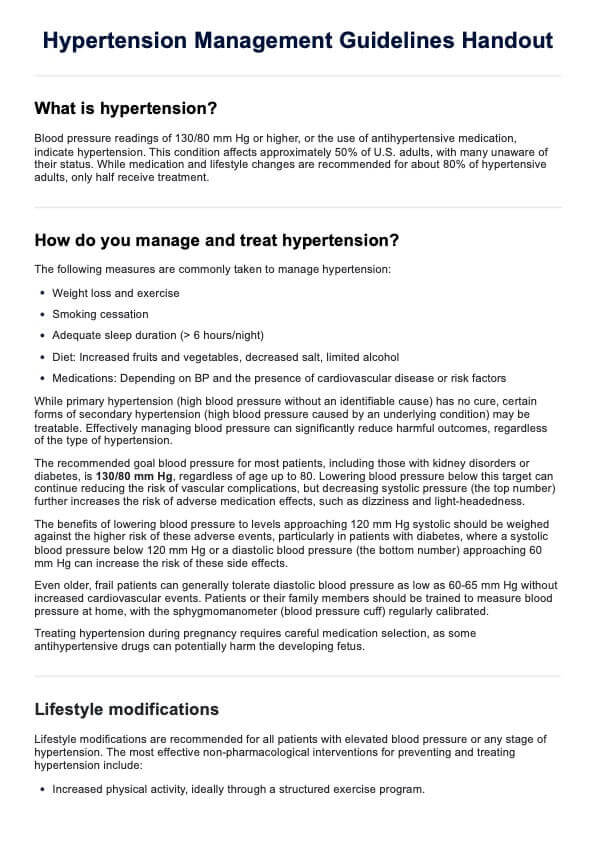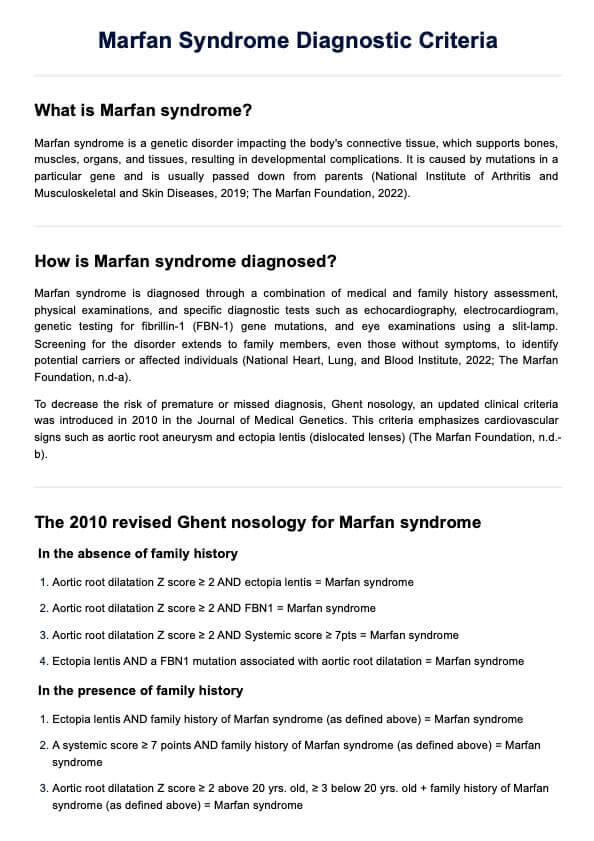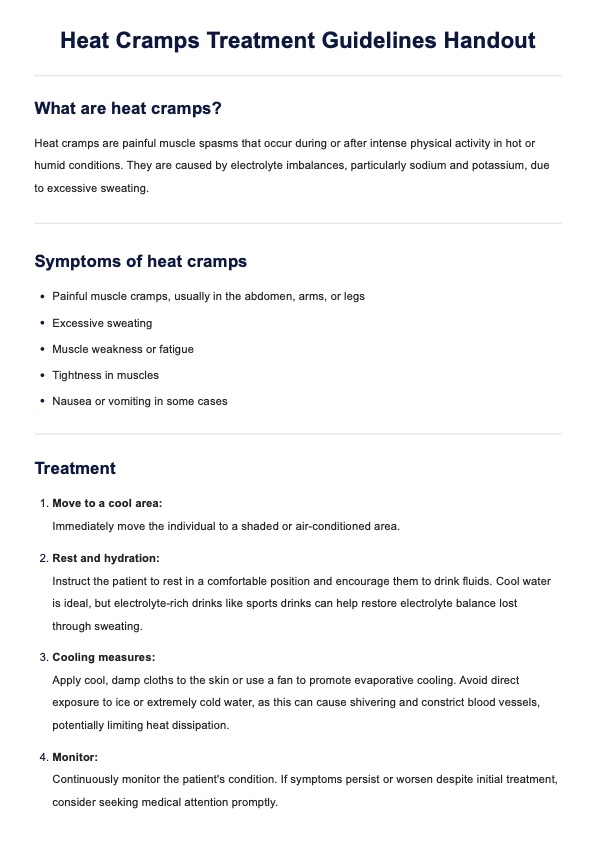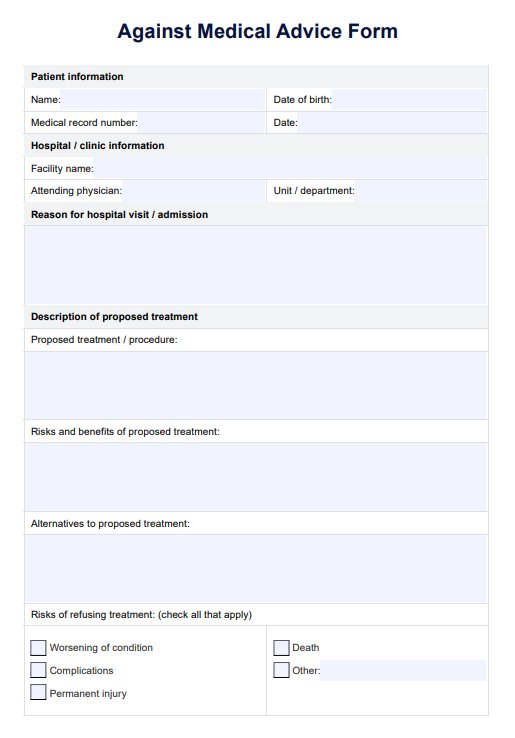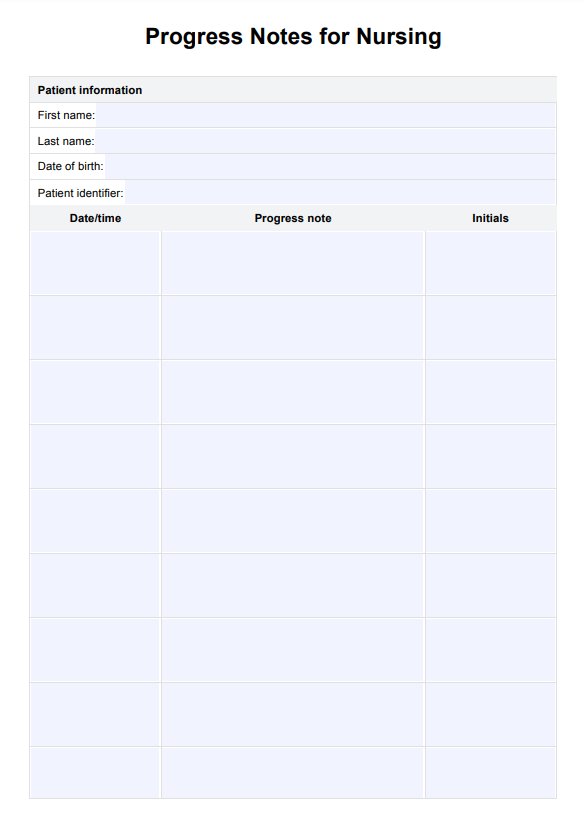Nursing Skills Checklist Template
Are your nursing skills up to par? Use the Nursing Skills Checklist Template to assess your competence, identify areas for improvement, and more.


What is a Nursing Skills Checklist Template?
Nursing skills encompass a broad spectrum of abilities crucial for quality patient care. These skills range from patient assessment and medication administration to effective communication and critical thinking.
Nursing Skills Checklist Templates assess and document a nurse's proficiency in these essential skills. This resource is a comprehensive guide for nurses and educators, outlining specific competencies and allowing individuals to self-assess their capabilities.
Typically available in digital and printable formats, the template offers a systematic approach to evaluating skills, categorizing them for clarity, and incorporating competency levels for self-assessment. It serves as a dynamic tool for tracking professional development, identifying areas for improvement, and ensuring that nurses adhere to ethical standards and best practices.
By utilizing this resource, nurses can identify strengths and areas for improvement, track progress over time, and establish targeted goals for ongoing professional development, ultimately ensuring safe and effective patient care delivery.
Nursing Skills Checklist Template
Nursing Skills Checklist Template Example
How does it work?
Navigating and assessing nursing skills is streamlined with the Printable Nursing Skills Checklist Template. This tool facilitates a systematic approach to evaluating and enhancing nurses' competencies in various crucial areas.
Step 1: Download the template
Access the template easily by downloading it from a secure source or copying it into your preferred format, ensuring flexibility for both digital and print use.
Step 2: Self-assessment
Initiate a self-assessment by rating your competency level for each skill, guided by the provided scale of confidence levels—Level 1 (Confident), Level 2 (Need assistance), and Level 3 (No experience).
Step 3: Skill evaluation
Systematically review each skill category, from assessment to intervention, teaching, communication, and additional skills, marking your proficiency level.
Step 4: Overall competency level
Evaluate your overall competency by selecting the appropriate level—Confident, Need assistance, or No experience—for a comprehensive understanding of your strengths and areas for improvement.
Step 5: Set goals and reflect
Utilize the checklist as a foundation for setting goals and reflecting on your performance, fostering continuous professional development in nursing practice.
When would you use this template?
The Nursing Skills Checklist Template benefits various healthcare practitioners at different stages of their careers. New graduates can use it to assess and enhance their foundational skills systematically. Seasoned nurses seeking professional development can leverage the template to identify areas for continued improvement and track progress over time.
Nursing educators can utilize it as an instructional aid, guiding students through skill development and providing a structured approach to competency assessment. During performance reviews, individual practitioners and healthcare organizations can use this template to evaluate and document a nurse's capabilities comprehensively.
In emergencies, it can serve as a quick reference for assessing proficiency in critical skills. Travel nurses transitioning to different healthcare settings can also employ this tool to adapt and demonstrate competence in new environments.
It is a dynamic resource applicable throughout a nurse's career journey, supporting skill development, self-assessment, and the delivery of safe and effective patient care.
What do the results mean?
The Free Nursing Skills Checklist Template results offer insights into a healthcare professional's competencies. A consistently high level across various skills signifies a well-rounded and proficient nurse, instilling confidence in their ability to deliver optimal patient care. A mix of competency levels may indicate specific strengths and areas for improvement, allowing practitioners to tailor professional development plans.
For those predominantly at Level 1 (Confident), it reflects a high degree of self-assurance and experience, suggesting they can function with minimal supervision. A Level 2 (Need assistance) in certain areas suggests competence but with room for growth, highlighting opportunities for targeted training or mentorship. In contrast, Level 3 (No experience) flags areas requiring close supervision and additional training.
Analyzing these results helps healthcare professionals and educators collaboratively address skill gaps, ensuring continuous improvement. Regular assessments using this template foster a culture of learning and development, promoting a workforce committed to delivering safe and proficient healthcare services.
Research & Evidence
The research titled "Students' Perspectives on Learning Practical Nursing Skills: A Focus Group Study in Norway" by A. G. Gregersen et al. explores the complex nature of practical nursing skills and the evolving demands in the healthcare field.
The study, conducted with registered nurse (RN) and intellectual disability nurse (IDN) students, delves into their perspectives on human-to-human relations, organizational competence, technical mastering, and building competence. The findings highlight the multifaceted aspects of practical skills, emphasizing the need for a holistic approach beyond technical proficiency. The study underscores challenges faced in clinical placements, varying opportunities for skill practice, and the tension between theory and practice.
This research is crucial in shaping nurse education to meet evolving healthcare needs. It emphasizes the significance of practical procedure performance and the need for a curriculum that better addresses the demands of healthcare services. Policymakers and educators can draw insights from this study to enhance clinical environments, bridging the gap between theory and practice in nursing education.
References
Gregersen, A. G., Hansen, M. T., Brynhildsen, S. E. A., Grøndahl, V. A., & Leonardsen, A. C. (2022). Students' Perspectives on Learning Practical Nursing Skills: A Focus Group Study in Norway. Frontiers in Public Health, 10, 842211.
Commonly asked questions
To create a template, outline essential nursing skills, categorize them, and use a digital or paper format to structure competency levels for self-assessment.
During nurse training, performance evaluations, and ongoing professional development, these templates are used to assess and document competency levels in various essential skills.
Healthcare professionals use the templates for self-assessment, educators for tracking student progress, and organizations to ensure that nurses provide safe and effective care.
The templates can be created by nursing educators, experienced nurses, or healthcare organizations, tailoring the checklist to specific roles, settings, and competency levels.


